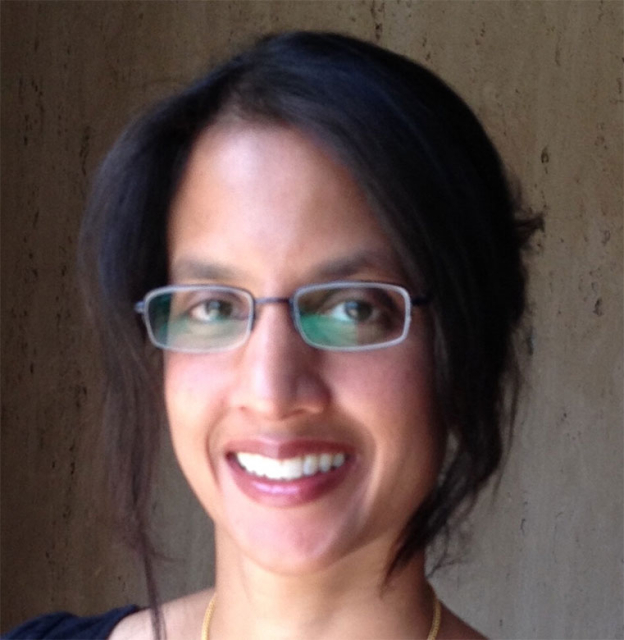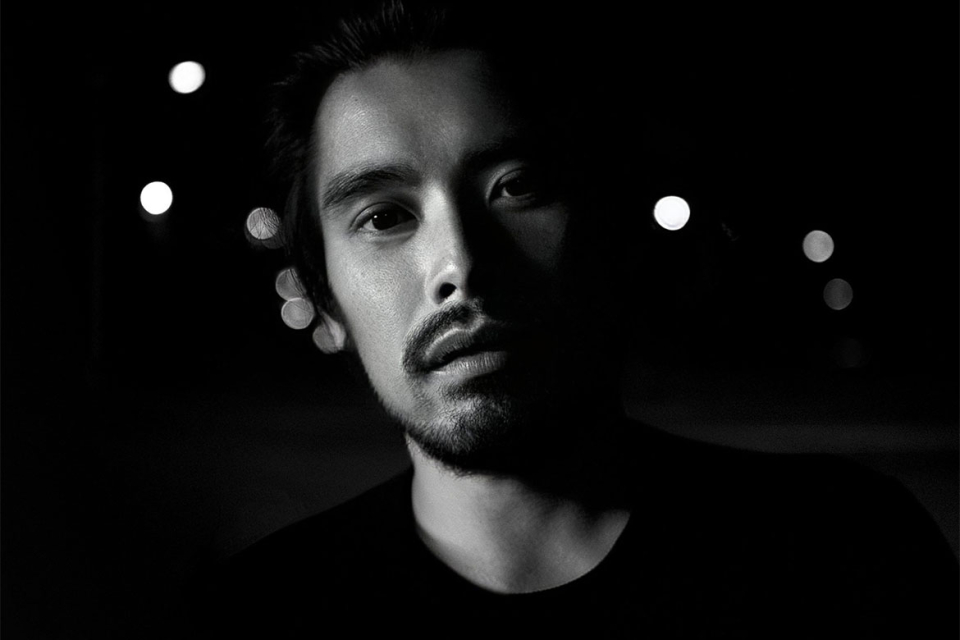Last March, in the beginning of the pandemic, Christine Chang was in a grocery store in New York when a woman saw her, and reacted as though the Asian American actress was contagious with COVID-19, scurrying quickly away in the opposite direction.
Since then, Chang has been harassed two other times. Once, while walking home from an anti-Asian racism march, a pedestrian in Union Square yelled out, calling her a "dirty fucking pig" as she passed. In another incident, a man came up to her car, knocked on the window and made threatening gestures. It all happened against the backdrop of talk blaming the pandemic on "the Wuhan virus" or "the China virus."
Chang, who stars as Dr. Agnes Kao on NBC's New Amsterdam, says she stopped taking the subway for a while, and is more aware of her surroundings now.
"In the past, I felt it wasn't worth bringing things like this up, but I went on social media to talk about it," Chang says. "My showrunner (David Schulner) and the writers reached out to support me."
Their support led to putting a spotlight on anti-Asian racism and hate crimes in the show, an effort that has become one of numerous industry efforts to combat the problem. Nearly 7,000 hate crimes tied to anti-Asian discrimination have occurred nationwide since the start of the pandemic, according to the group StopAAPIHate.
Co-executive producer and writer Y. Shireen Razack incorporated Chang's experience into an episode titled "Blood, Sweat and Tears," where Dr. Kao treats an Asian American patient experiencing PTSD from a hate crime, and reveals that she, too, has experienced a racist attack.
"After that episode, I received so many messages from Asian Americans around the country who felt seen," Chang says. "The impact of seeing ourselves on television makes a difference. If you don't see something on TV, it feels like it's not important. We need to think about the broader context of what's going on. Racism isn't going to change overnight. But I want to use my acting as a way to advocate for change."
Razack, who is now a co-executive producer on Peacock's Vampire Academy, is also a co-founder of the Think Tank for Inclusion & Equity (TTIE), which aims to empower underrepresented TV writers and create more opportunities for authentic storytelling.
When the Atlanta mass shootings occurred at three massage parlors in March, killing eight people - six of whom were Asian women - TTIE leaders decided to take action.
"Three-quarters of our leadership are of Asian descent," Razack says. "Asian American and Pacific Islander History Month was in May, and we wanted to change the narrative. So we released a series of fact sheets, by community, saying that representation matters."
The fact sheets detail negative stereotypes, glossary terms, online resources, story ideas to avoid, and story ideas that accurately reflect Asian American lives and cultural values. The fact sheets, which cover East Asians, Southeast Asians, South Asians and Native Hawaiians and Pacific Islanders, are part of the educational resource tips about numerous underrepresented groups that can be found on https://www.writeinclusion.org/education.
"We'd like to see more storylines humanizing Asians, and having Asians be the focus in the storyline," Razack says. "It's all about changing the perception American film and TV have created about Asian women and men.
"What you see on screen is usually an Asian character written at a baseline of whiteness, then they cast an Asian. There's no Asian cultural aspect infused into the character. It's a misrepresentation of who we are."
Razack says the need for culture-conscious writing in television is greater than many people understand. So often, she notes, underrepresented writers of all races and ethnicities are told, "Let's not make this story too specific because it'll lose its universal appeal," she says.
"To underrepresented writers, that translates to 'let's keep it white culture.' Hollywood is so focused on the bottom line. We need to start thinking about the social responsibility we have to make things better."
Bao Nguyen, whose film Be Water aired on ESPN last year, had been watching the slow escalation of anti-Asian racist acts since the pandemic began.
"The incidents began getting more violent," Nguyen says. "With the senseless attacks against the elders, I couldn't take it anymore."
When fashion designer Phillip Lim reached out, saying some concerned AAPIs were starting an AAPI Community Fund on GoFundMe to combat anti-Asian hate crimes, Nguyen signed up to help. He wrote and directed a 3-minute short film Together, that was used as a PSA to promote the fund by showing a trail of 150 years of anti-Asian racism in the United States.
"For so long, our community has felt that our moments of trauma had no value," Nguyen says. "There's a sea change with that happening now. For me, as a child of refugees, I looked at TV for inspiration about culture and morality. I felt in a way that my life didn't have value because I didn't see myself (on TV)."
Today, the director is doing all he can to promote an Asian American presence in film and TV. Recently, he served as a producer on the See Us Unite for Change Global Special, which aired across MTV's portfolio of brands and on MTV, BET, Nickelodeon and Facebook Watch in May.
"I did the short packages that talked about hate on the special," Nguyen says. "Putting together a 90-minute special in a month is an historic feat. I'm very proud of what we did."
The host of the special was actor, comedian, writer and producer Ken Jeong, who says everyone has a perspective on how to raise awareness of anti-Asian racism, whether it's with PSAs or an animated video on what to do as a bystander.
"The key is to simply do something," Jeong says. "We've all experienced systemic racism. I think of my daughters' futures, and others in the community. My goal is to reach out to that Asian American kid who feels unvalued, and say, we know you, we see you."
Jeong says the television industry still has a long way to go to ensure equality for all in the business. He says he was fortunate in being able to create and make his own show, Dr. Ken, which ran for two seasons on ABC.
"I created five series regular roles for Asian Americans, and that was intentional," Jeong says. "It's important to have as much representation on screen as possible. But we need more Asian Americans behind the scenes - writing, directing and producing. We need more power and influence behind the scenes."
Many Asian Americans deem the Atlanta shootings a wake-up call, both for the AAPI community to speak up about racist acts, and for non-Asians to truly see what is happening to Asian Americans.
In response to the shootings, networks and studios issued statements of support. Much of the focus was on internal audits and educational workshops on how to tell better stories and increase AAPI representation in the industry:
Fox Entertainment did an on-air PSA/message campaign in March, airing a "Stand in Solidarity Against Asian Hate" with The Resident's Manish Dayal, as well as social posts with Fox talent.
The Resident's Season 4 opener ("A Wedding, A Funeral") included anti-Asian racism in a storyline with hospital vice president Logan Kim (played by Rob Yang), who revealed the pain of racist acts he endured from those fearing the "Wuhan virus."
ABC aired a number of PSAs highlighting the AAPI hate crimes issue, and ESPN Creative Studio team members Andrew Truong and Genta Nakahara created a #StopAsianHate PSA that celebrates Asian athletes that ran across ESPN linear networks and on digital platforms.
ComcastNBCUniversal announced a $2 million pledge ($1.5 million in cash and $500,000 in-kind) to Asian-led and Asian-focused social justice and nonprofit groups working to address violence against the AAPI community. Grants were given to Asian Americans Advancing Justice – AAJC; Asian Pacific Fund, Asian American Federation and the Asian/Pacific Islander Chamber of Commerce and Entrepreneurship Foundation.
Saturday Night Live also partnered with OpenSea to auction an NFT from a recent sketch that went viral, raising $365,000 for StopAAPIHate.
Before the Atlanta shootings, Paramount led a social media campaign denouncing racism and violence against AAPIs in February. The next month, after the shootings, ViacomCBS brands posted stands against anti-AAPI attacks and hate.
ViacomCBS also gave a $1 million contribution to several organizations that support the AAPI community and causes, including StopAAPIHate, and Nickelodeon posted a series of anti-Asian hate PSAs featuring youth and talent saying racism is not okay.
Staggering statistics prove that the issue is not going away as pandemic restrictions ease, and life goes back to a semblance of normal.
Jeong says anti-Asian hate crimes in 16 of the nation's biggest cities increased 149 percent in 2020, while overall hate crime dropped 7 percent (according to the Center for the Study of Hate and Extremism at California State University, San Bernardino).
"This happened during quarantine, when everyone's supposedly staying home," Jeong says. "We all know someone who's been affected, whether it was verbal assault or physical. There's nothing funny about this issue. This is a human rights issue, and we all need to be on the same page with it."
More articles celebrating Asian American & Pacific Islander Heritage Month.














